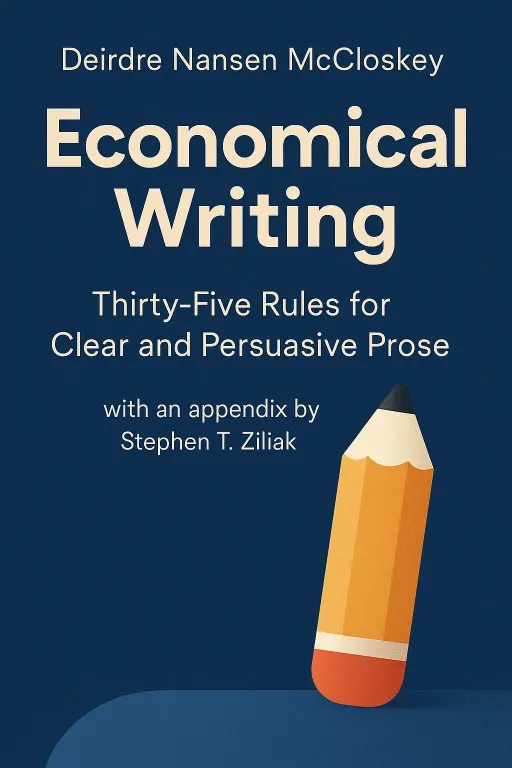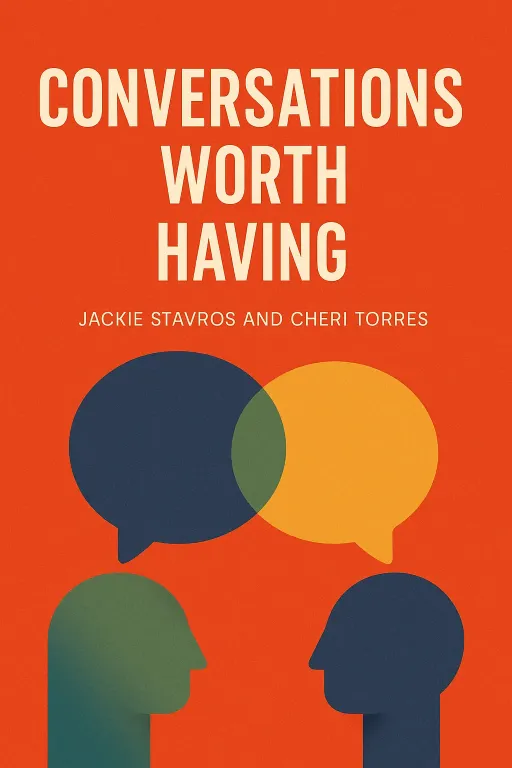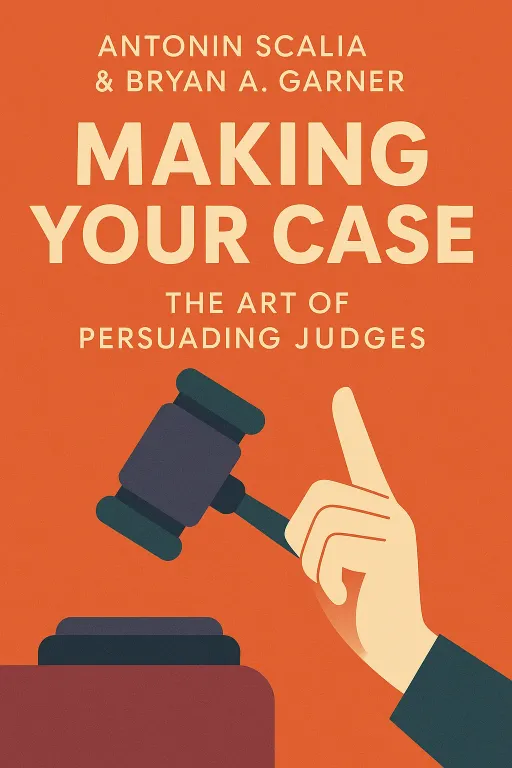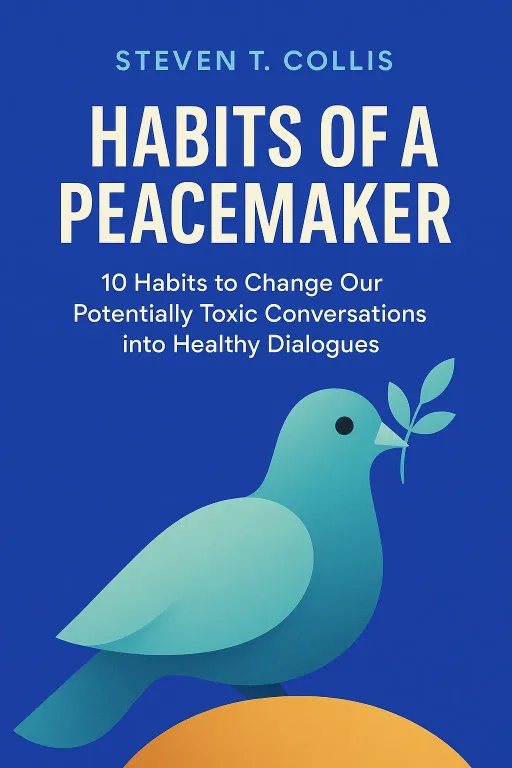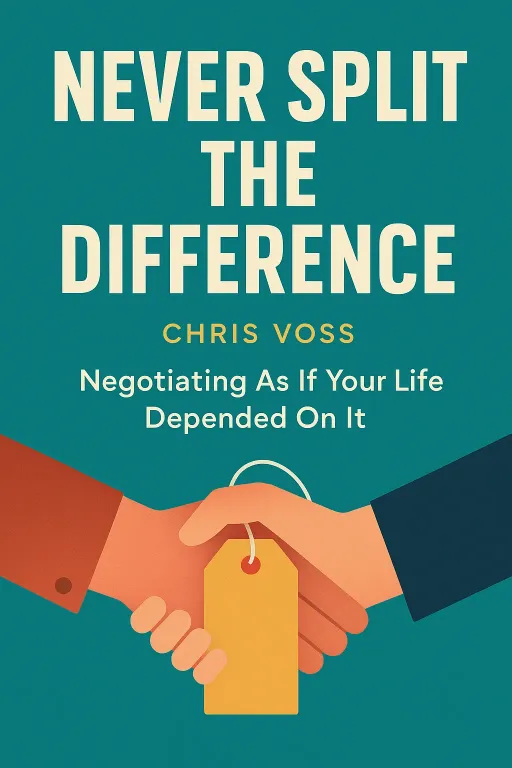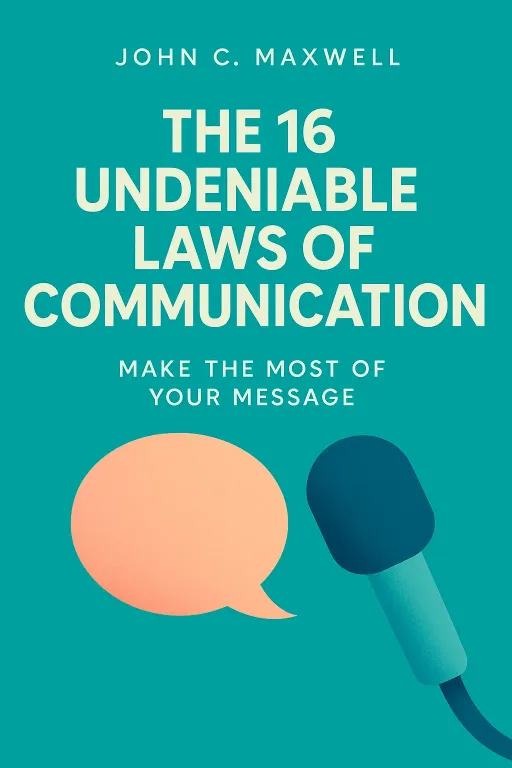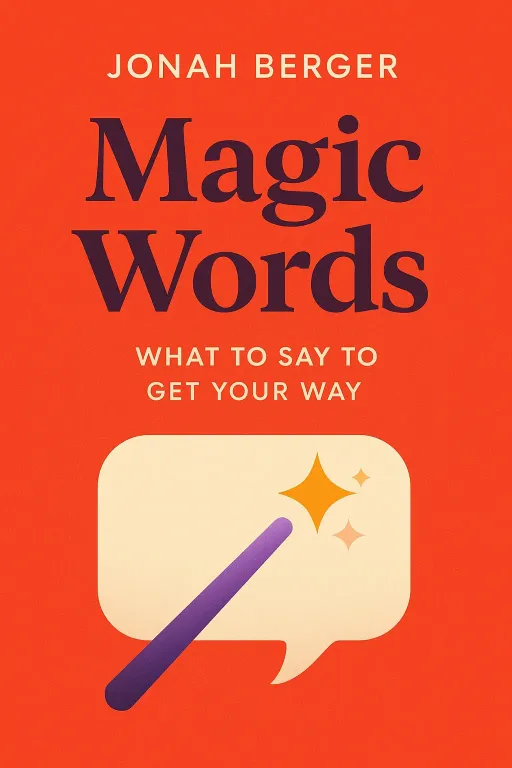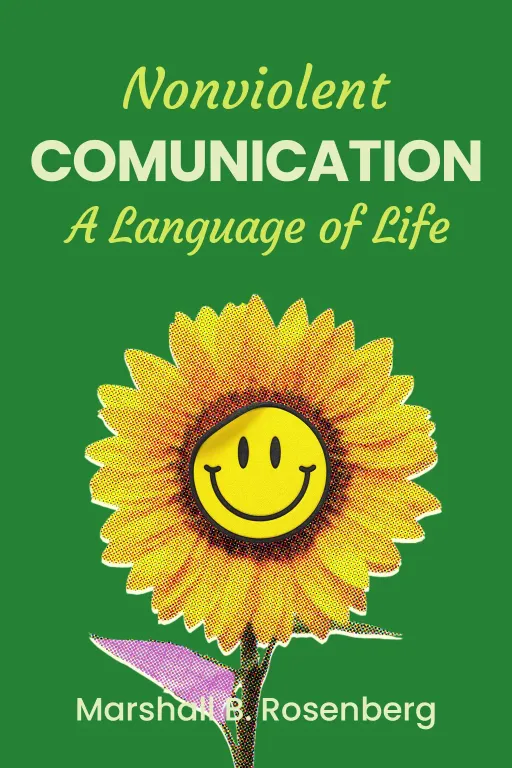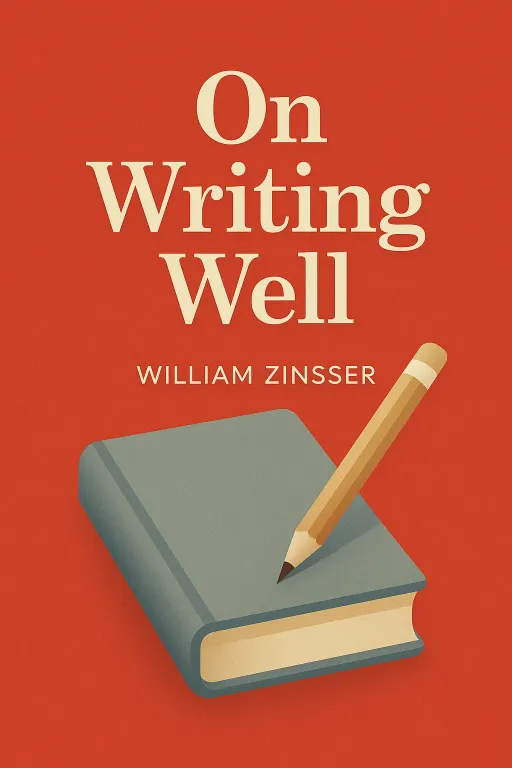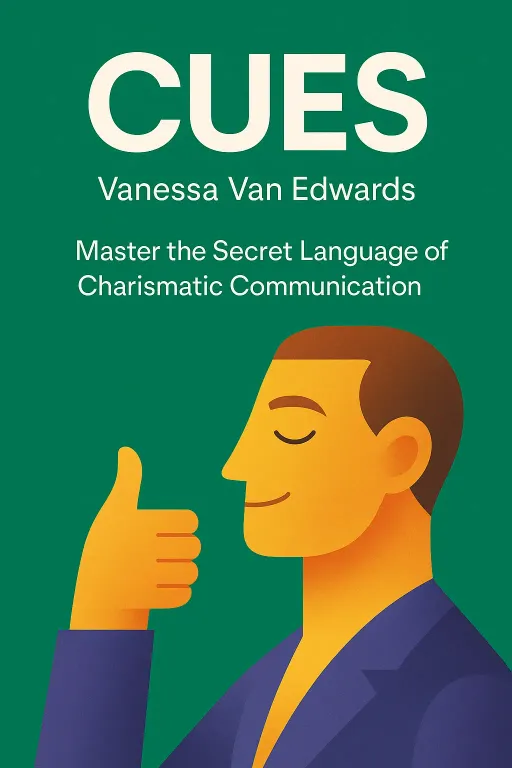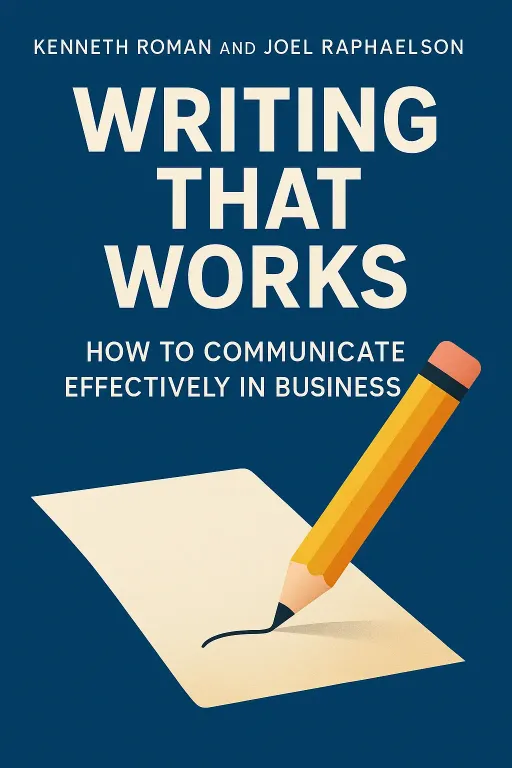
Write Like a Mad Man
9 minHow to Communicate Effectively in Business
Golden Hook & Introduction
SECTION
Michelle: A survey of Vice Presidents at major US companies found that a full third of the business writing they see is, and I'm quoting here, 'unclear, poorly written, or confusing.' Mark: Oh, wow. So there's a one-in-three chance my last email made my boss want to throw their laptop out the window. That's a terrifying statistic. Michelle: It is! It means one out of every three reports, memos, or emails landing on a decision-maker's desk is actively wasting their time and probably hurting the sender's career. Mark: Which is a problem I think we all feel. We're drowning in words, but starving for clarity. Michelle: Exactly. And that's the core problem Kenneth Roman and Joel Raphaelson set out to solve in their classic guide, Writing That Works: How to Communicate Effectively in Business. What's so fascinating is that these guys weren't academics. They were the top brass at Ogilvy & Mather, the legendary advertising agency. Mark: The Mad Men guys! David Ogilvy's agency. Michelle: The very same. So they came from a world where words have to work. A bad ad costs millions. A bad memo can sink a project. They saw all writing as a tool to sell, persuade, and get things done, not just to inform. Mark: Okay, so they're basically applying advertising principles to everyday office emails? I'm intrigued. That feels like bringing a bazooka to a knife fight. Michelle: It is! And their core argument is that your biggest writing problem isn't your grammar; it's that you think like a writer, when you should be thinking like a busy, impatient reader.
The Writer's Mindset: Communication as Performance
SECTION
Mark: I like that framing. Thinking like the reader. But what does that actually look like in practice? Most of us are just trying to get our thoughts down before the next meeting starts. Michelle: Well, the book gives this incredibly vivid mental image. Picture a top executive. Their desk is almost completely clean. Not because they have no work, but because they are ruthless about what gets their personal attention. Mark: Right, they have an army of assistants to handle the fluff. Michelle: Precisely. So if you want that executive to read your memo, it can't be a long, rambling document. It has to be so clear, so concise, and so obviously important that it earns its place on that clean desk. Anything less gets delegated or, worse, ignored. Your writing is auditioning for their time. Mark: That's a great analogy. Every piece of writing is an audition, and the reader is the world's busiest, most impatient casting director. You get ten seconds to make an impression. Michelle: And if you fail, you're out. There's a quote from a CEO in the book that just nails it. He says, "Too many of the communications I get are meaningless... They don't help me understand what action the writer wants me to take. They waste my time." Mark: Wow. That's brutal. But isn't this a bit cynical? What about just sharing information for the sake of collaboration? Does everything have to be a 'sale'? Michelle: That’s a fair question, but the book argues that even sharing information is a 'sale.' You're selling the importance of that information. And it's not just about corporate efficiency. They tell this amazing story about the U.S. government. Mark: Oh, this should be good. Government and clear writing don't usually go together. Michelle: You would think! But the Veterans Benefits Administration, the VBA, was sending out these incredibly confusing letters to veterans. The language was so dense and bureaucratic that hardly anyone was responding. This created huge backlogs and administrative headaches. Mark: I can picture it. A ten-page letter to explain a simple benefits change, written in pure legalese. Michelle: Exactly. So, they brought in writing coaches and trained their staff to write in plain, simple English. The result? The response rate to their letters shot up dramatically. And get this—the increased efficiency from just writing clearer letters saved the agency half a million dollars a year. Mark: Half a million dollars? Just from writing better? Michelle: Just from writing better. It proves the point. Clarity isn't about being a slick salesperson. It's about respect for the reader. It's about efficiency. It's about making things happen, whether that's getting a veteran their benefits or getting your project approved. Poor writing has a real, tangible cost. Mark: Okay, I'm sold on the 'why.' My brain is a 'stream of unconsciousness' half the time, just like that Shoe cartoon the book mentions. So how do you actually do it? Where do you even start?
The Editor's Toolkit: The Art of Simplicity
SECTION
Michelle: The perfect question. This is where the Ogilvy & Mather training really shines through. The book's first and most important principle is simple: "Don't Mumble." Mark: Don't Mumble. What does that mean in writing? Like, don't use a fuzzy font? Michelle: (Laughs) No, it means be direct. Say what you mean, right away. Don't warm up. Don't beat around the bush. Let me give you a classic 'mumbling' sentence you might see in an email. Mark: Okay, hit me with it. Michelle: "It is my opinion that, with respect to the Q3 budget projections, it would perhaps be advisable for us to consider the possibility of re-evaluating our initial expenditure forecasts." Mark: My soul just left my body. I think I've written that exact sentence. It sounds professional, right? Michelle: It sounds like you're trying to hide. The "Don't Mumble" version is: "We need to rethink the Q3 budget." Mark: Whoa. Okay. That's... direct. It feels almost naked. Michelle: It feels effective! The first version is a 27-word jungle. The second is a 7-word spear. Which one is more likely to get a response? This is what they mean by using short sentences, active voice, and simple words. You have to cut through the jargon and the fluff. Mark: Speaking of jargon, the book tells that story about "Buzzword Bingo." I have absolutely played that in meetings. I once got a bingo in the first five minutes. The prize was my own silent despair. Michelle: (Laughs) We've all been there! "Let's circle back to synergize our core competencies and leverage the paradigm shift." It's meaningless. It's a defense mechanism people use to sound smart, but the book argues it has the opposite effect. It alienates your audience and obscures your message. Mark: It's like a smokescreen made of words. Michelle: A perfect description. And the antidote is to use simple, down-to-earth language. But this isn't just a business trick. The book makes a powerful point by looking at great literature. Mark: How does Shakespeare connect to writing a better memo? Michelle: Think about King Lear. He's at the absolute peak of human grief, holding his dead daughter. He doesn't say, "I am experiencing a profound state of bereavement and existential angst." He says five simple words, five times: "Never, never, never, never, never." Mark: Chills. Yeah, you can't get more powerful than that. Michelle: Right? The deepest emotions and the most profound ideas are almost always expressed in the simplest words. Or think of George Bernard Shaw, the brilliant writer, trying to describe his reaction to a new piece of music. He didn't use a bunch of fancy adjectives. He distilled the feeling down to its essence and wrote: "I did with my ears what I do with my eyes when I stare." Mark: That's beautiful. It's so simple, but it creates such a perfect image. You know exactly what he means. Michelle: Exactly. So whether you're Shakespeare or a marketing manager, the principle is the same. Find the core of what you want to say, and say it as simply and directly as you can. That's the secret to writing that actually works.
Synthesis & Takeaways
SECTION
Mark: So it all comes back to two things, then. First, respect the reader's time as if it's the most valuable resource on the planet, which it is. And second, be absolutely ruthless in your own editing to make your point as sharp and simple as possible. Michelle: That's the heart of it. The book's secret, coming from that high-stakes world of advertising, is that clarity isn't just a nice-to-have virtue; it's a massive competitive advantage. In a world that is drowning in information and noise, the person who can communicate an idea cleanly and persuasively is the one who wins. Mark: Wins the client, wins the promotion... Michelle: Or just wins the battle of getting a response to their email instead of being archived into oblivion. It scales all the way up and all the way down. The principles that sell a product are the same ones that get your idea heard in a meeting. Mark: It really reframes writing from a chore into a skill, a tool you can sharpen. Michelle: Absolutely. And it's a skill anyone can learn. The authors are very clear that this isn't about being a literary genius. It's about discipline and a shift in perspective. Mark: So what's one thing our listeners can do, right now, to start putting this into practice? Michelle: I love the simplest test the book suggests. Before you hit 'send' on your next important email, or finalize that report, just read it out loud. Mark: Read it out loud? Michelle: Yes. To yourself. If it sounds convoluted, if you stumble over the words, if it sounds like something a real human being wouldn't actually say in a conversation, then it needs to be rewritten. Your ear will catch the 'mumbling' that your eye will miss. That one simple step can change everything. Mark: A simple but powerful test. I'm going to try that. Probably save myself from that one-in-three statistic. Michelle: This is Aibrary, signing off.
